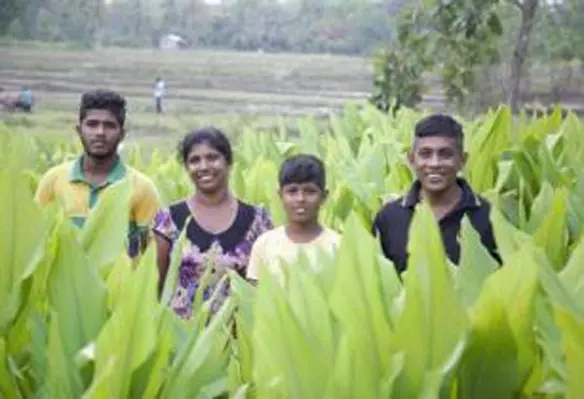The International Fund for Agricultural Development (IFAD) and the government of Sri Lanka have signed a financial agreement to launch the Smallholder Agribusiness and Resilience Project (SARP)
The project aims to address the impacts of climate change on about 40,000 smallholder families, by building their resilience and promoting the commercialisation of agriculture.
Improving rural livelihoods, boosting food security and building climate resilience in the country’s dry zone, is crucial for eradicating persistent pockets of poverty in Sri Lanka. The project development objectives are in line with national priorities – and significant for achieving the Sustainable Development Goals.
“We’re increasingly seeing heavier and less predictable rains, hot spells and extended dry periods in Sri Lanka. Rural households in the dry zone are acutely affected by these changes in climate,” said Sherina Tabassum, IFAD country director for Sri Lanka. “Farmers in these ‘hot spots’ are highly exposed and vulnerable, and need our support. Working with the government of Sri Lanka, IFAD will help them build resilience, respond to climate change and link them to markets,” she added.
As far as 80% of Sri Lanka’s 21.6 million people live in rural areas, and make up for the largest share in South Asia. Most rural households in the dry zone depend on small tank-based irrigated farming for their livelihoods. Smallholder farmers cultivating under these village irrigation systems are poorer and more vulnerable to the impacts of climate change than dry zone farmers, with access to major irrigation. Climate variability and extreme events further hit productivity and crop yields, dragging them deeper into poverty. To make up for food deficits, smallholders have to buy food for to eat – which leads to more debt and further hinders their ability to cope with climate risks.
The six-year project will mobilise climate-sensitive investments, and work with smallholder producers to build and expand agricultural activities, that are climate resilient and part of inclusive value chains. The project will operate in six districts in the dry zone, namely Anuradhapura, Vavuniya, Matale, Mannar, Puttalam and Kurenagala districts. Potential commodities include goats, dairy, chili, and fruits and vegetables, as well as more specialised crops like aloe vera and moringa – a wide range to mitigate the risks of climate change.
Producer organisations and watershed associations will learn to manage climate risks. Women, youth, group organisations and social enterprises will also benefit from support in managing enterprises in a financially profitable and sustainable way.
With total funding of US$42.7mn, IFAD is providing a US$41.7mn loan and a US$1mn grant for the new project. In addition, the government of Sri Lanka is providing US$12.7mn, with a further US$13.2 million contributed by project participants themselves. The private sector will provide US$1.7mn, while UNDP, WFP and UNOPS are also contributing US$8.8mn, US$2.6mn and US$0.3mn respectively.
IFAD has been an important partner for Sri Lanka’s rural development agenda for decades – its first-ever loan agreement was with the government of Sri Lanka in 1978. Since then, IFAD has supported 19 rural development projects worth US$340mn. These interventions have directly benefited 654,832 rural families.




